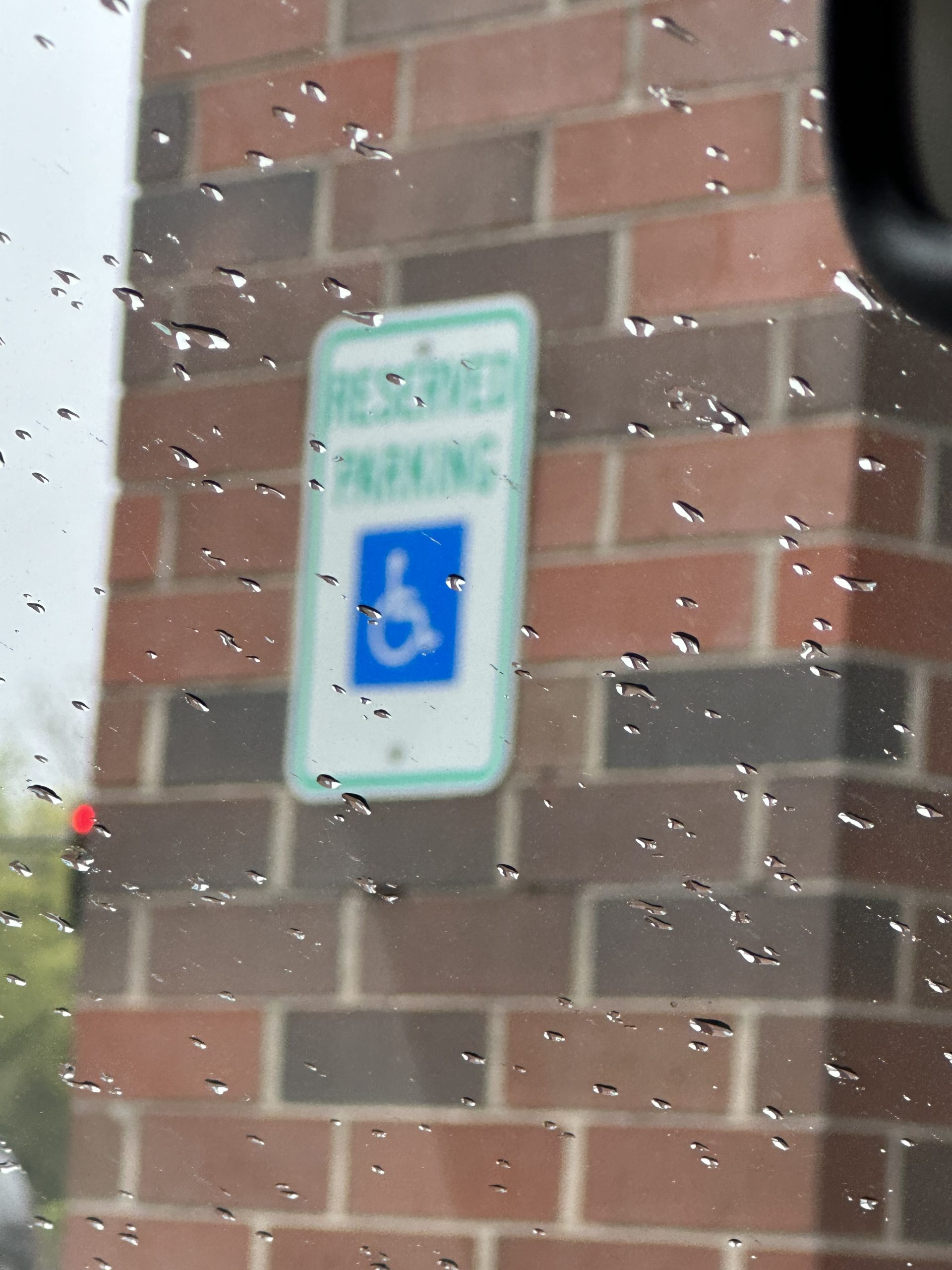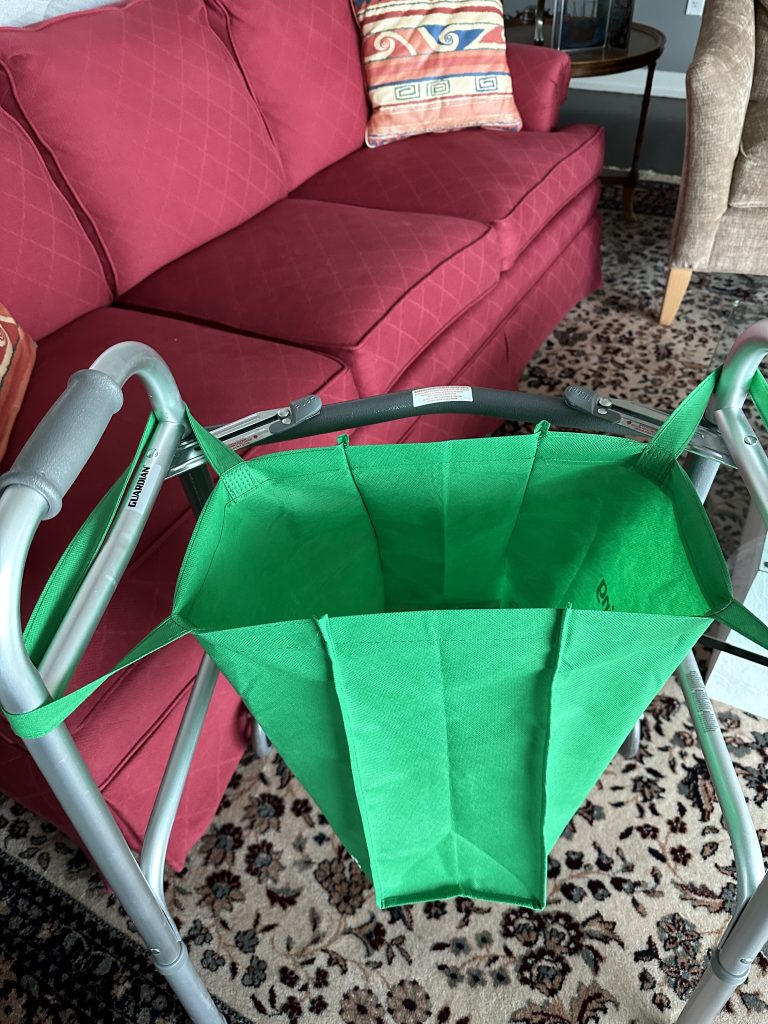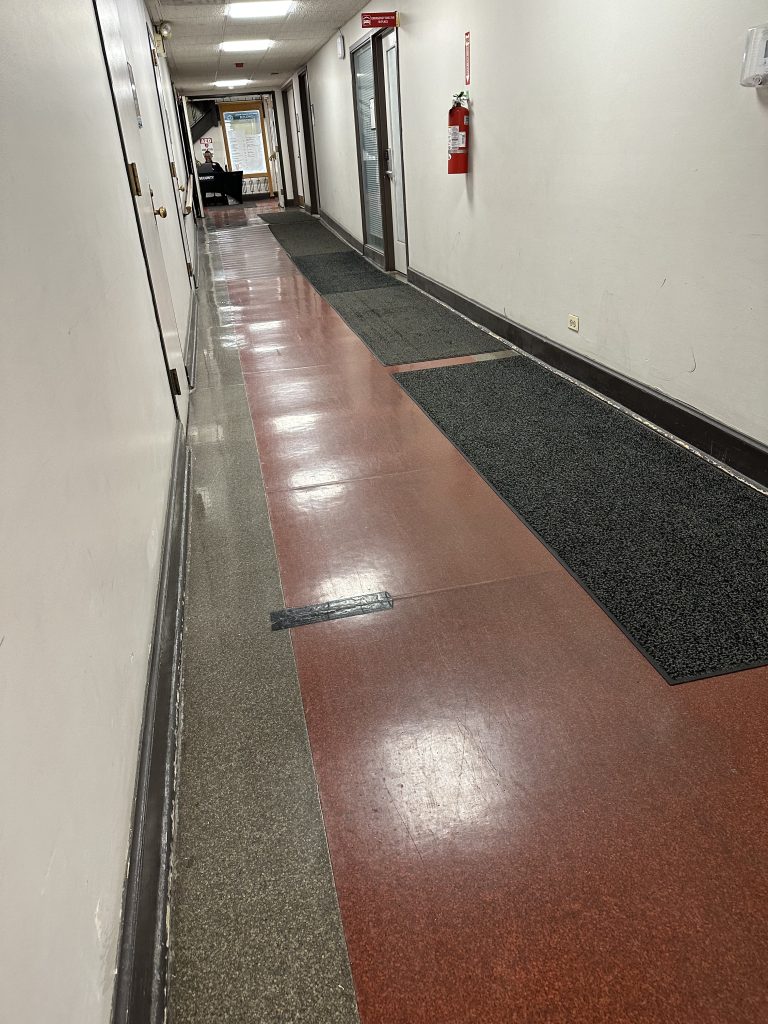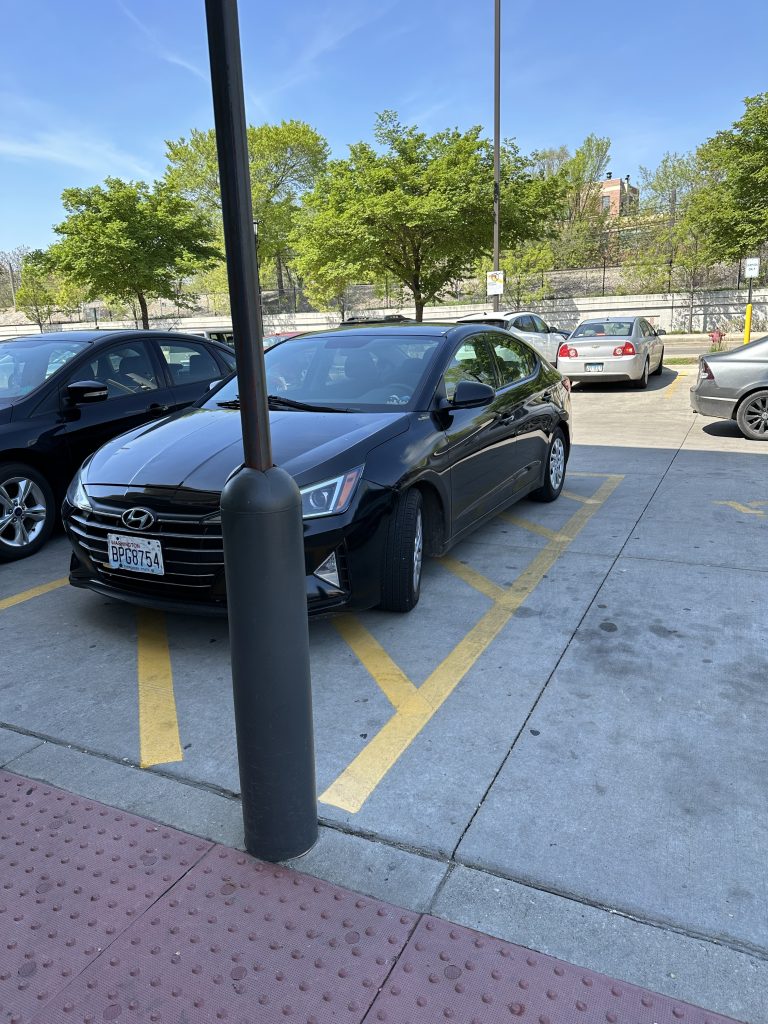
“You can’t understand someone until you’ve walked a mile in their shoes.” — American saying, author unknown
Part of aging is the physical breakdown of our bodies. I have tried to slow down the inevitable by working with a physical therapist weekly to strengthen my aching back and core (such as it is). Ironically, it was doing a new exercise (likely incorrectly) that left me with strained groin muscles and damage to the joint between my left and right pelvic bones that caused tremendous pain when I tried to initiate walking. After a visit to the pain doctor, an x-ray, and MRI, my doctor recommended lots of rest, pain management (translation, lots of pills), and using a walker. Finding a walker to borrow was easy. Most of my friends have one, as many people in my age group have had knee and/or hip replacements, broken bones from falls, or just need one to navigate the world.
In Harper Lee’s To Kill a Mockingbird, Atticus Finch tells Scout, “You never really understand a person until you consider things from his point of view, until you climb inside of his skin and walk around in it.” The walker was a real eye-opener. I was shocked to discover how hard it was to navigate my condo, let alone the outside world.
My condo itself is structurally fine. An elevator building. One floor living. Doors wide enough to accommodate a walker or wheelchair. A shower with a grab bar. So why couldn’t I get around easily? We had arranged our furniture based on aesthetics alone, not worrying if visitors, several of whom use wheelchairs, walkers, or canes, had enough space to move from one part of our home to another.
Once we moved things to clear paths wide enough room to maneuver, I made another shocking discovery. Our living room is basically open concept, but I realized I could only sit in one spot on the sofa. I couldn’t navigate the coffee table. Filled with shame about how insensitive our furniture arrangement was to our aging friends, several with with physical disabilities, we started to rethink how we could make our home truly accessible.
My first venture outside with the walker was going with my husband to the Civic Center to get a handicapped placard for the car. Armed with my doctor’s form, we found the handicapped entrance, a ramp leading into the basement. It is an old building, and all other entrances involved many stairs. Once in, I caught my walker on a series of mats placed down to catch the snow/rain. When we put down mats like these at the handicap-accessible preschool I directed, we used duct tape to hold them in place and replaced them when they started to curl. Not so at the Civic Center, where they were a huge trip hazard.
When I explained what we needed to the man stationed down a long hallway at the information desk, he pointed to the staircase to the second floor and informed us we needed to go to the City Clerk or City Collector. I guess he didn’t look up at me to see the walker. Luckily, we were near the one small elevator in the building. The City Clerk sent us across the hall to the City Collector. There was a line of people waiting, but no one offered to let me go ahead of them or even to sit on a chair. When I finally reached the head of the line, the Collector told me, “We don’t do that here,” and gave me some extension numbers for other departments I could call from the house phone down the hall. Of course, no one answered. Luckily for me, the woman at the closest desk, whose job was to issue building permits, redirected me to the City Clerk and advised me to make him read my paperwork and ask for a placard, not a sticker. Finally, we were on our way.
We thought we could go into Walgreens on our way home for one item, but the only handicapped spot was already taken so I waited in the car. Just another time I was left out. At a different Walgreens the next day, we snagged a handicapped space for our COVID boosters. When we finally emerged, here’s what we found:
Yes, someone had parked in the zone next to handicapped spots that supposedly affords someone who is disabled enough room to enter their car. Luckily, I was not alone and my husband could back the car out so I could get in.
I have also discovered that many “accessible” buildings do not have automatic door openers, or if they do, it’s only on the outer door. A trip to the audiologist’s office on the first floor of a newish building is a perfect example. Getting into the office was doable as the outer door had a button for handicapped access and the inner door pushed inward. Exiting was another matter. I could not pull the office door inward and was lucky a man in the waiting room saw my plight and helped me.
I have a friend with MS who has described the many times an Uber driver saw she was an older woman in a wheel chair and just kept going. Before she was using the wheel chair, when she came to our old house with her walker, she had to enter though the backyard alley and have people assist her up several stairs to enter the house. I had a small, first-floor powder room, which must have been challenging for her to use. I also had a few steps to go from the front hall to the rest of the first floor. Of course, all of the bedrooms and bathrooms were up a full flight of stairs. One of the reasons we moved was contemplating a future in which aging made it harder to manage all of those stairs. I don’t know how I would have handled this injury if we hadn’t moved, and I am racked with guilt over not seeing how hard it was for my friend to come over as her illness progressed.
As I wrap this up with my hands cramping from arthritis, I needs to share a final thought. No matter how empathic you think you are to others who are aging and/or have disabilities, it takes actually putting yourself in the same position as someone who has a handicapping condition to understand fully how challenging life can be. For those of us lucky enough to be temporarily restricted or not suffering from a permanent disability, incidents like mine are a preview of coming attractions.
“I do not ask the wounded person how he feels, I myself become the wounded person.” ― Walt Whitman
Boomer. Educator. Advocate. Eclectic topics: grandkids, special needs, values, aging, loss, & whatever. Author: Terribly Strange and Wonderfully Real.






This really gives the reader a glimpse into the world of negotiating how those with disabilities have to navigate the world, Laurie and it’s not pretty! I will be in that situation by the end of January, even if only temporarily, as I need serious toe surgery that will leave me non-weight bearing for 6 weeks. My house is fairly easy to navigate, as we have a bedroom and full bath on the main floor, I just have to get into the house after the surgery, as there are stairs up from the garage. Maybe my husband will carry me up, or I’ll come up on my behind. After that, I won’t leave except for doctor appointments and will probably have one of those scooters to keep my leg up just to move around the house. But I will have to give my husband lessons on grocery shopping, doing laundry, etc, as that is not his domain. After the first 6 weeks, at least I’ll be in a walking boot, so will need help, but can get around a bit more easily. I appreciate your story as we all age and become more infirm.
Oh, Betsy, I’m so sorry you will have to go through this. Hopefully, you will manage it ok and the time will fly by. Next week will be my third with the walker, but I’m getting stronger every day and am not using it inside of my condo now. Your husband, like mine, will learn new and important skills, such as how to turn on the washer and dryer (LOL). While we have been going grocery shopping together the last couple of years, but he went on his own for the first time last week. He got everything on the list, but not one thing more, and we ran out of food by the end of the week. This week we went together and I learned walkers are not the same as walkers — a small set back.
This was hard to read. Especially since my sister is suffering from various ‘aging’ issues. I couldn’t believe what you went through to get your handicap sticker/placard. In New Jersey you simply mail the request with a copy of your doctor’s note, and pick it up when they have it ready. My sister has a helper who ran it and got it. Laurie, we’re all so hypnotically concerned on our own plight, that we fail in our empathy for others. we definitely have to raise the bar, or our society is doomed.
So true, Patty. As we age, we are more likely to encounter, canes, wheel chairs, walkers, and assorted set backs. Some will luckily be temporary and others we will have to learn to live with. As a society, we are not as sensitive to the issues of people with disabilities, even young people.
Thanx Laurie for the reminders! My sister was wheelchair-bound and then bedridden for the last years of her life and a friend has been wheelchair-bound for decades.
Altho sympathetic and accommodating, I realize I never really thought about navigating the world in their shoes.
And thanx for the touching Walt Whitman quote, as a Civil War medic he surely knew the wounded.
I also thought I was pretty thoughtful and empathic. But actually experiencing the obstacles people with disabilities encounter is another thing. A PT shared with me that, as part of her training, she had to spend a week in a wheelchair.
As I was reading this, it sounded like a perfect description of the need for the ADA—which has not been a panacea but has made some difference. So far to go. We have been reorganizing our living arrangements to accommodate limitations too, but you point out so well how you never realize the reality until you live it. Growing old isn’t for sissies. May you recover well and never lose your compassion.
Thanks, Khati. I’m getting better each day and will likely ditch the walker soon. But I will never forget what I learned. ADA is a start but it doesn’t apply to many settings.
I sympathize with your experiences and agree that we should teach people to recognize and adjust positively to the problem.
In my classes, on the first day I assign my students the task of describing the class room. On the whole the men write about the physical features and the women about the emotional atmosphere. Then, I ask them to describe the room for a blind person, or one a disabled person. There is usually a sense of shock and inability to finish the assignment. I help them by asking about which way the doors open, the size and nature of the door handles, the effect of windows open, of temperature, of having the teacher recognize them.
I have a lot to add about your experience in government buildings. I will muzzle myself.
Please don’t muzzle yourself. We need to speak up, especially to local bureaucrats who pass tons of ADA regulations for places like my preschool but follow very few in their own spaces. I love your classroom assignment. I know a PT who shared part of her training was spending a week in a wheelchair. She said it was an eye-opener.
I echo pattyv’s sentiment that this was a bit of a harrowing tale. So many of us have been lucky and have been “whistling past the graveyard,” as my Mom used to say, so far. Since my Mom’s struggle with dementia and a close friend’s with a lethal neurological disorder, I panic a bit every time I forget where I left my phone.
So do we all. The nouns seem harder to retrieve these days.